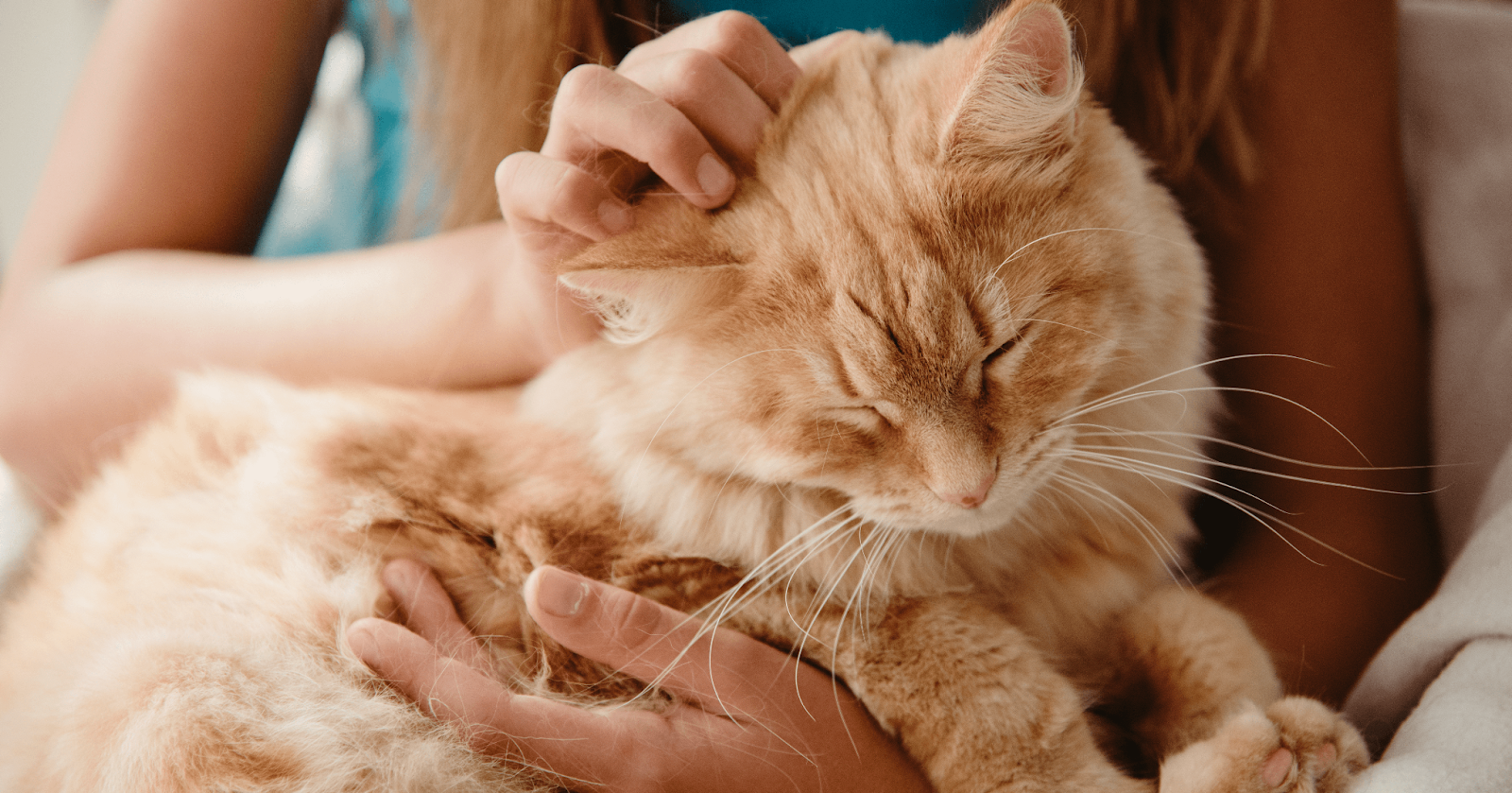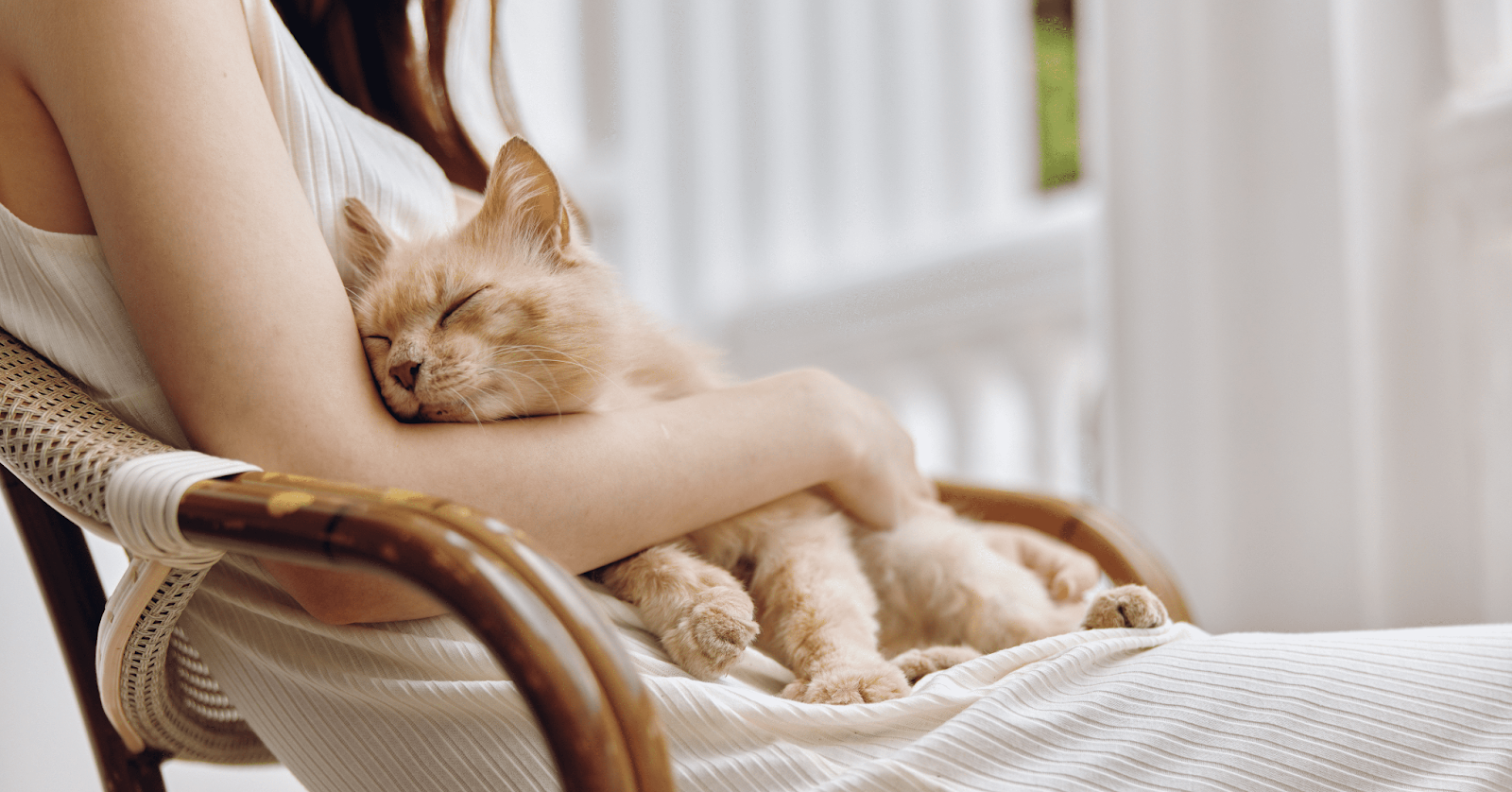
What Makes Cats Happy? 6 Things You Need to Know!
Are you meeting your kitty's needs, know them well and understand what makes them happy?
There are lots of ways to keep our cats content! At a basic level, our furry friends need to feel comfortable and relaxed in their surroundings, have plenty of food and water, comfy beds, somewhere to toilet, and an environment that stimulates their physical and mental needs.
But there are lots of other things to remember too, to keep cats happy!
Get to know your cat
A happy cat is an understood cat!
When you adopt your cat and bring them to their new home, you will begin to understand their personality and learn to read their body language. If they are sleeping / dozing, grooming themselves in a relaxed manner or coming to meet you with their tail upright, you'll know they're relaxed.
Keep an eye on their whiskers! If they are lying close to their face, your cat is not very happy, but if they are relaxed and fanned out to the side, you can be sure that your feline friend is feeling good!
And look out for that purr, if your cat is settled beside you and purring gently, you can be sure they are happy; but keep an eye out for other accompanying body language signals, as purring can also be a sign of stress. Discover the signs of a happy cat here.
So, what other things make a cat happy?

6 Things You Need to Know to Keep Cats Content
1. Cats like routine
From the moment they wake in the morning (sometimes too early!) until the time they settle down at night, cats like to know how their day is going to progress.
It may take a little time for them to settle into a routine when they first arrive home, but once this is established they like to stick to it. So if you have any changes planned around the home, like moving furniture, do this gradually and give them time and support to help them adjust. FELIWAY Optimum provides enhanced serenity to cats, and helps them feel calm and secure in their environment so that they can adjust to any changes.
If anything out of the ordinary happens, such as visitors to your home, you may find your cat disappears to one of their safe spots until they feel safe enough to reappear!
2. Cats need mental stimulation
Although cats love routine in their day to day life, it is good to give them some variety too. This can be done by rotating the games you play with them, organising a treasure hunt where they search and find treats, or even gentle training sessions - yes, cats can be trained!
Activity feeders can also be a great source of mental stimulation for cats. Did you know that wild cats eat 10-20 small meals a day? They're not always successful at catching things, so instead of expecting a large satisfying meal, they're used to eating little and often.
Giving your domestic cat a challenge of working to get their food from an activity feeder, can emulate the 'little and often' eating habits of their ancestors - and provide the mental stimulation they need.
Try different types of feeders at different times, to give your cat a variety of challenges. Commercial cat feeders are readily available and require interaction from the cat in order to release the food using the tongue or paws; but home made puzzles are just as effective! Try hiding kibble in an egg box, or inside a stack of cardboard tubes. It will be just as stimulating and rewarding for your cat!
Remember, it is important that your cat does not get frustrated, so supervise their success rate and adjust the puzzle accordingly to make sure they find their food!
3. Cats need to use their natural instincts
Wild cats have to fend for themselves and use their natural skills, stalking, chasing, pouncing, and catching, to survive. Our domestic cats still have these skills and love using them when they are outdoors. But you should also help them develop and maintain these skills during play sessions. Playing hide and seek with food toys, chasing a toy mouse or pouncing on a feather at the end of a stick, will all help, but don't forget the thrill of the catch and have some treats handy as a reward!
Also keep in mind the age of your cat! Kittens will have boundless energy, but perhaps a senior cat will want to take things more slowly.

4. Encourage physical activity
The structure of a cat's environment is important to them. Cats love to climb, hide, scratch and relax.
Providing hiding places, access to elevated shelves and scratching objects will all help your cat live their best life. From leaving space under the bed to hide, to providing stepping stones (like cupboards or chairs) so that they can access a shelf, to providing a scratching post, will all help maintain your cat's physical health.
5. Look after your cat's senses
Cats are amazing! They have 5 senses, just the same as humans, sight, hearing, smell, taste and touch. However, it's important that you get to know what is normal for your cat and if you notice a change, or anything suspicious get them checked out by your vet.
- With their excellent vision they can even hunt at night. But do keep a careful watch out for changes in coloration (redness, cloudiness), discharge, changes in pupil size (one side larger than the other) or blinking/holding one eye closed.
- Their hearing is pretty spectacular too! They can hear a wide range of sounds including high frequency (ultrasonic) that humans are unable to hear.
If you find your cat scratching or shaking their head more than usual, or if you notice any swelling, odour or discharge, or sudden loss of balance, it could be a sign that something is amiss with their hearing.
- A cat's sense of smell helps them to locate prey or danger, and even sense when there are new things happening in their environment, like unfamiliar animals.
If your cat is sneezing frequently, this might be due to an upper respiratory virus.
- Cats are notoriously fussy about their food but their smell and taste are intertwined, so any interest they show in food might be because of the texture or how it smells, and not necessarily how it tastes.
If you notice a change in your cat's eating habits, it could be because of dental issues.
- A cat's whiskers are their strongest radar and are very sensitive to the slightest touch. They use their whiskers for monitoring their surroundings and although we always associate whiskers with a cat's face and nose, they do have smaller groups of whiskers on their body, including their paws.
A cat's whiskers will be shed naturally, as will its fur, but don't be tempted to cut your cat's whiskers, as it could make your cat disoriented.

6. Encourage interaction
Understanding how to interact with your cat is important and setting aside time during the day for play, training or just snuggling up together will make a difference to your cat's wellbeing and your bond. Remember that cats are more active early in the morning and early evening, so these are good times to initiate play.
Learn where to stroke your cat - they love their head and around their ears being stroked, but stay away from their feet and paws!
But when introducing your cat to other pets and people, do it gradually. Give your cat time to make their own introductions, on their terms and don't force them. You'll know when they are happy to interact when they make the first move towards you, they rub against your leg or they start purring or kneading.
It's also important to recognise when your cat does not want to interact with you. Make sure they have plenty of hiding places or areas where they can rest undisturbed.
Don't forget - cats really do rule the house, and a happy cat is a happy home!




































